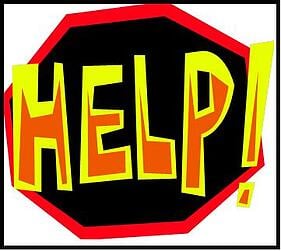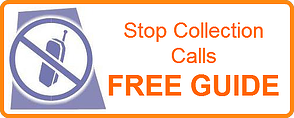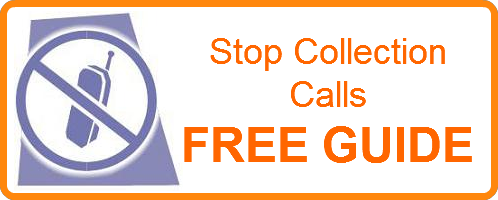 Getting several calls from harassing debt collectors?
Getting several calls from harassing debt collectors?
Here are a few tips on how to stop illegal debt collection practices:
The Fair Debt Collection Practices Act (FDCPA) prohibits debt collectors from using illegal, abusive or deceptive practices to collect money!
You need to know your rights and what to do if you think they have been violated.
The FDCPA is enforced by the Federal Trade Commission (FTC) or the Federal Bureau of Consumer Protection. They have a very helpful website that would be worth your time to visit.
The FDCPA covers all personal or family debts including:
- Credit Cards
- Auto loans
- Medical Bills
- Mortgages
- Personal Bank Loans
- Store Cards
- Pay Day Loans
- Private Student Loans
A debt collector CANNOT CALL YOU AT ANY TIME OR PLACE! They can only call between 8am (your time) and 9pm (your time).
Collectors may not contact you at work after they are told (by phone or in writing) that you are not allowed to receive calls at work!
A debt collector cannot “harass” you. Now, harassment can take many forms, but specifically, a debt collector is prohibited from:
- Using threats of violence or harm
- Using obscene or profane language
- Making many, many calls per day (if you are getting several calls, keep a log for future reference)
- Making false statements:
- Claiming to be attorneys if they are not
- Claiming to be a government representative
- Claim that you will go to jail
- Claim that they are going to pursue legal action (if in fact they do not)
- Make false claims of the amount you owe
- Threaten to garnish your wages or sell property to pay your debt
The first time a collector or creditor calls, talk with them. Don't get angry or yell at them, but be strong and don't act weak. Simply explain your situation and ask them to give you some time.
To stop future calls, send a letter that states that you intend to repay the debt, but cannot at this time due to (reason for hardship). Request that they stop calling you immediately or that you will file a complaint with your state’s attorney general’s office and the Federal Trade Commission.
Send the letter by registered mail and keep the receipt that they received it.
The calls should stop, and if they don’t, follow through with your report of collection abuse! The worst thing you can do when you are behind on your payments is to ignore them.
You may be able to Settle Your Debts
If your debts are behind 3,4 or 5 months or more, you may be able to negotiate a settlement for less than you owe!
For example let's say that you have a delinquent credit card with a balance of $5,000. Unfortunately, you are unemployed or have some other financial hardship, so you just can't keep up with the minimum payments.
- It may be possible to negotiate a one-time settlement of 50% or less of what you owe.
- If the collector or creditor agrees, GET THE AGREEMENT IN WRITING before making a payment!
- If you do not have a lump sum (most people don’t), you may be able to negotiate a settlement paid over several months.
We arranged term payment settlements all the time, some as long as 24 months!
If all of this just sounds like too much for you to handle, let us help.







 Is it possible to stop a wage garnishment in Oregon?
Is it possible to stop a wage garnishment in Oregon? Can I use debt settlement in Oregon to clear up old debts?
Can I use debt settlement in Oregon to clear up old debts? How can you Stop Debt Collector Calls?
How can you Stop Debt Collector Calls?


 All too often, individuals who are struggling with their debt fall victim to debt collector tricks and scams—all because they aren't aware of the laws that exist to protect them. The Fair Debt Collection Practices Act (FDCPA) was enacted to protect people from the unfair, deceptive and abusive tactics that many companies were using in their attempt to collect outstanding debts. Under this law, you have specific rights that protect you from the worst debt collector tricks.
All too often, individuals who are struggling with their debt fall victim to debt collector tricks and scams—all because they aren't aware of the laws that exist to protect them. The Fair Debt Collection Practices Act (FDCPA) was enacted to protect people from the unfair, deceptive and abusive tactics that many companies were using in their attempt to collect outstanding debts. Under this law, you have specific rights that protect you from the worst debt collector tricks. 


